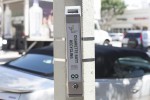Gov. Jerry Brown signed a set of smoking-related bills Wednesday, including a bill that raises the legal smoking age for tobacco from 18 to 21.
The bills also expand no-smoking areas to cover all areas of public schools and places restrictions on electronic cigarette use. Four of the five bills approved in a special session on health care will go into effect June 9, and the last bill Brown signed Wednesday will go into effect Jan. 1, 2017, as do most bills signed into law.
Gov. Brown vetoed the sixth bill in the package, Assembly Bill X2-10, which would have allowed cities and counties to impose additional taxes on tobacco products. California is the second state in the nation to raise the minimum smoking age to 21, after Hawaii did in January.
California State Senator Ed Hernandez (D-West Covina), who authored Senate Bill X2-7, the bill that raised the legal age of purchasing tobacco products, said he thinks the measure presents a united front against Big Tobacco corporations.
“The fierce opposition from Big Tobacco on this measure proves just how important this law is and how much their business model relies on targeting our kids,” Hernandez said in a press release.
Brown also signed Wednesday Senate Bill X2-5, which categorizes e-cigarettes and vapes as tobacco products, and Assembly Bill X2-9, which expands California’s tobacco-free school laws so that all public and charter schools receiving tobacco prevention funding must be entirely tobacco free.
UCLA was the first University of California school to ban use of tobacco products on campus. The policy went into effect April 2013, following recommendations from UCLA’s Tobacco-Free Steering Committee.
Assembly Bill X2-7 will ban smoking in all owner-operated businesses and hotel lobbies, bars and employee break rooms, and Assembly Bill X2-11 will increase licensing fees to sell and distribute tobacco products.
